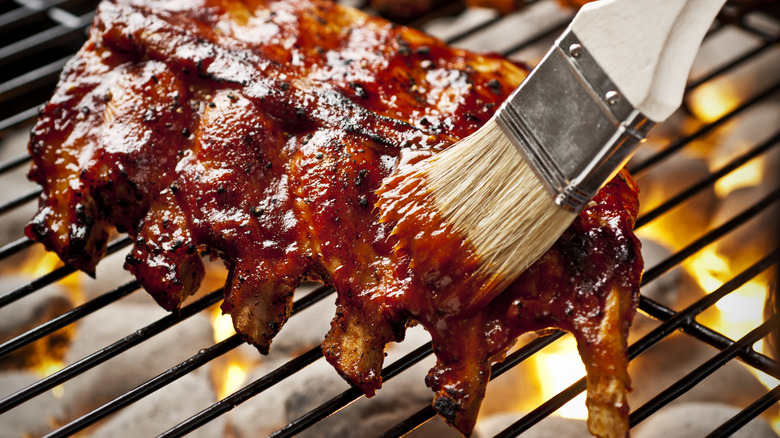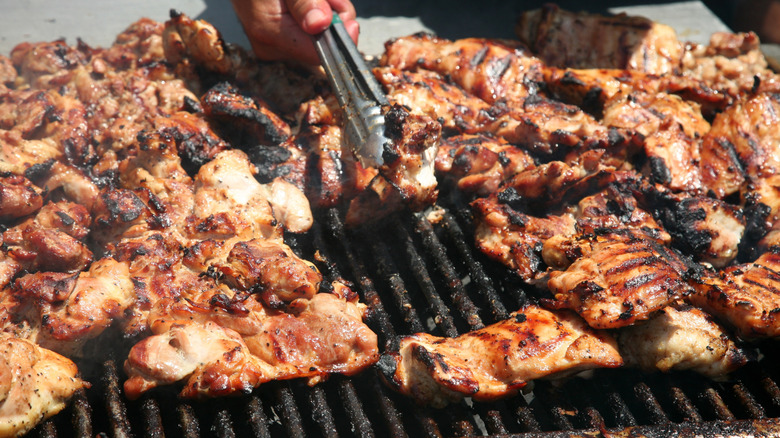How To Choose The Absolute Best BBQ Sauce For All Your Grilled Meats
Styles of regional barbecue in the U.S. are as varied as their sauces for slathering over beef, pork, or chicken on an outdoor grill. Some people prefer barbecue sauce so sweet it'll make your teeth ache, while others favor no-holds-barred spicy that numbs your tongue and lips. There are probably hundreds — if not thousands — of bottled barbecue sauces to choose from to suit your tastes. But not all sauces are created equal, and one might be great for ribs but not be so great for drumsticks. Tasting Table asked Christie Vanover, owner and champion pitmaster of Girls Can Grill, for her expert advice on the best sauce for grilling. Vanover's recently published cookbook, "Girls Can Grill Holiday Grilling," is an impressive compendium of her recipes and grilling tips, and we were all ears to hear her opinions. "When choosing a barbecue sauce," she told us, "remember its purpose is as a finishing sauce, not a marinade."
Barbecue sauce is one of several types of finishing sauces — like classic basil pesto or Romesco sauce – that's brushed on after the meat is cooked and just before serving. A finishing sauce can be confused with a glaze, which is brushed on while the meat is grilling. You don't want a barbecue sauce's ingredients to clash with what you're cooking, so Vanover recommends "look[ing] for a sauce flavor profile that is going to complement the entire meal."
Use different sauces for different meats
Different regions of the U.S. have culturally influenced varieties of barbecue sauce. "In the Southeast, you'll find barbecue sauces that are mustard, mayonnaise, or vinegar based," Christie Vanover said. "These go especially well with pork and chicken." For example, barbecue sauce in eastern North and South Carolina is vinegar-forward and the oldest type of barbecue sauce that dates back to the antebellum days. A mustard-based sauce brought by immigrant Germans who preferred mustard with smoked meats is found from South Carolina to Florida, and Alabama's unique white BBQ sauce is heavy on the mayo.
Also great for lighter, mild proteins that are enhanced by a finishing sauce, Vanover suggested using "sauces with Asian influences that include hoisin, soy sauce, or oyster sauce," such as a Chinese barbecue sauce or a Japanese barbecue sauce. When it comes to pork, Vanover leans more towards bottled brands. "Most sauces you'll find in the store are ketchup based with some sort of sugar or corn syrup. These are great on ribs and pulled pork." Smoked brisket, however, is another story altogether. Saucing brisket — and other smoked beef dishes — isn't common, and in some barbecue circles, especially in Texas, sauce on brisket is a big no-no. "A properly smoked brisket," Vanover explained, "should be so flavorful that it can shine on its own."

